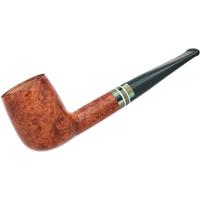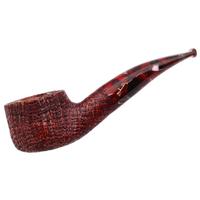One of the current books I am reading (I usually have four or five on the go at one time) is 'Elizabeth's London: Everyday Life In Elizabethan London' by Liza Picard.
The book looks at all aspects of life in the period (1558 - 1603) from working conditions to health issues to crime and punishment and the like. Yesterday I came to the chapter on 'Amusements' which touched on recreational drugs, tobacco in particular. Below is a snapshot that I hope you find as interesting as I did.
"Tobacco was at first thought to be good for you. The Spanish pharmacologist Nicolas Monardes praised it as a cure for anything from bad breath to kidney stones. But smoker's wives must have noticed its negative effect on bad breath: 'it makes your breath stink like the piss of a fox' [Dekker: The Honest Whore act II scene I]. By 1577 it was being grown in England and by the 1590's a small pipeful could be bought in a playhouse for 3d.
At the playhouses and animal-baiting rings 'and everywhere else, the English are constantly smoking the Nicotan weed [Nicotiana] which in America is called Tobaca'. Once they had got their clay pipes to draw 'they draw the smoke into their mouths which they puff out again through their nostrils like smoke, along with it plenty of phlegm and defluxion from the head'. To 'drink' tobacco was to inhale.
A Swiss medical student writing in 1599 gives us this description:
'In the alehouses tobacco or a species of wound-wort [henbane?] are also obtainable...the powder is lit in a small pipe. The smoke is sucked into the mouth, and the saliva is allowed to run freely, after which a good draught of Spanish wine follows. This they regard as a curious [exceptional] medicine for defluctions, and as a pleasure, and the habit is so common with them that they always carry the instrument [pipe] on them and light up on all occasions, at the play, in the taverns or elsewhere, drinking as well as smoking together...and it makes them riotous and merry, and rather drowsy, just as if they were drunk, though the effect soon passes...and they use it so abundantly because of the pleasure it gives, that their preachers cry out on them for their self destruction and I am told the inside of one man's veins after death was found to be covered in soot just like a chimney'.
This is the fourth of Picard's books I have read and each of them has been a splendid read, dealing with life in London at various periods of time. I eagerly await her next book 'Chaucer's People: A Social History Of The Fourteenth Century' due out in October this year.
Regards,
Jay.
The book looks at all aspects of life in the period (1558 - 1603) from working conditions to health issues to crime and punishment and the like. Yesterday I came to the chapter on 'Amusements' which touched on recreational drugs, tobacco in particular. Below is a snapshot that I hope you find as interesting as I did.
"Tobacco was at first thought to be good for you. The Spanish pharmacologist Nicolas Monardes praised it as a cure for anything from bad breath to kidney stones. But smoker's wives must have noticed its negative effect on bad breath: 'it makes your breath stink like the piss of a fox' [Dekker: The Honest Whore act II scene I]. By 1577 it was being grown in England and by the 1590's a small pipeful could be bought in a playhouse for 3d.
At the playhouses and animal-baiting rings 'and everywhere else, the English are constantly smoking the Nicotan weed [Nicotiana] which in America is called Tobaca'. Once they had got their clay pipes to draw 'they draw the smoke into their mouths which they puff out again through their nostrils like smoke, along with it plenty of phlegm and defluxion from the head'. To 'drink' tobacco was to inhale.
A Swiss medical student writing in 1599 gives us this description:
'In the alehouses tobacco or a species of wound-wort [henbane?] are also obtainable...the powder is lit in a small pipe. The smoke is sucked into the mouth, and the saliva is allowed to run freely, after which a good draught of Spanish wine follows. This they regard as a curious [exceptional] medicine for defluctions, and as a pleasure, and the habit is so common with them that they always carry the instrument [pipe] on them and light up on all occasions, at the play, in the taverns or elsewhere, drinking as well as smoking together...and it makes them riotous and merry, and rather drowsy, just as if they were drunk, though the effect soon passes...and they use it so abundantly because of the pleasure it gives, that their preachers cry out on them for their self destruction and I am told the inside of one man's veins after death was found to be covered in soot just like a chimney'.
This is the fourth of Picard's books I have read and each of them has been a splendid read, dealing with life in London at various periods of time. I eagerly await her next book 'Chaucer's People: A Social History Of The Fourteenth Century' due out in October this year.
Regards,
Jay.












 :
: